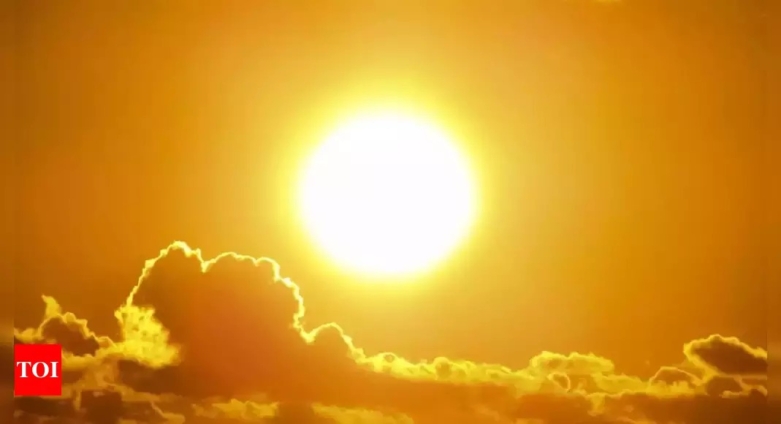The World Meteorological Organization (WMO) has officially confirmed that 2023 stands as the warmest year on record, surpassing previous records by a substantial margin.
The global annual average temperature approached 1.5° Celsius above pre-industrial levels, a significant milestone as the Paris Agreement aims to cap long-term temperature increases at no more than 1.5° Celsius above pre-industrial levels.
Consolidating data from six prominent international datasets, the WMO reports that the annual average global temperature for 2023 was 1.45 ± 0.12 °C above pre-industrial levels (1850-1900). Notably, each month from June to December witnessed new monthly temperature records, with July and August marking the two hottest months ever recorded.
According to Professor Celeste Saulo, the Secretary-General of the World Meteorological Organization (WMO), climate change stands as the most significant challenge confronting humanity. It impacts everyone, with a particularly pronounced effect on the most vulnerable populations. Professor Saulo emphasizes that the world cannot delay any further in addressing this pressing issue.
“We are already taking action but we have to do more and we have to do it quickly. We have to make drastic reductions in greenhouse gas emissions and accelerate the transition to renewable energy sources,” she said in a statement.
Professor Saulo noted that the transition from the cooling La Niña to the warming El Niño, anticipated by mid-2023, is evident in the observed increase in temperatures compared to the previous year. Considering that El Niño typically exerts its most substantial impact on global temperatures after reaching its peak, there is a possibility that 2024 might experience even higher temperatures.
While El Niño events are part of the natural climate variability, occurring cyclically from one year to the next, Professor Saulo emphasized that the more profound concern lies in the escalating impact of longer-term climate change, a phenomenon unequivocally linked to human activities. This observation underscores the critical point that the climate crisis is exacerbating existing inequalities on a global scale.
“It affects all aspects of sustainable development and undermines efforts to tackle poverty, hunger, ill-health, displacement, and environmental degradation,” said Prof. Saulo.
According to the WMO, since the 1980s, every successive decade has registered higher temperatures than the one preceding it. The last nine years, in particular, have consistently been recognized as the warmest on record. Notably, the years 2016 (marked by a strong El Niño) and 2020 were previously acknowledged as the warmest, recording temperature increases of 1.29 ±0.12°C and 1.27 ±0.12°C above the pre-industrial era, respectively.
Analysis by the organization based on six datasets reveals that the ten-year average spanning from 2014 to 2023 was 1.20 ±0.12°C above the 1850-1900 average, accounting for a margin of uncertainty. UN Secretary-General António Guterres expressed concern that human activities are significantly contributing to the Earth's rising temperatures.
He emphasized that 2023 provides a glimpse into the potentially catastrophic future awaiting humanity if urgent global action is not taken. Guterres stressed the imperative for unprecedented measures to counteract the escalating trend of record-breaking temperature increases.
“We can still avoid the worst of climate catastrophe. But only if we act now with the ambition required to limit the rise in global temperature to 1.5 degrees Celsius and deliver climate justice,” Mr Guterres said.
The World Meteorological Organization (WMO) emphasized that while long-term monitoring of global temperatures is a crucial climate indicator, several other key factors contribute to our understanding of climate change. These include concentrations of greenhouse gases in the atmosphere, ocean heat and acidification, sea level changes, sea ice extent, and glacier mass balance.
The WMO's provisional State of the Global Climate in 2023 report, released on November 30, revealed widespread record-breaking events. Sea surface temperatures remained exceptionally high throughout the year, leading to severe marine heatwaves with detrimental impacts. Antarctic sea ice extent hit unprecedented lows, both during the end-of-summer minimum in February and the end-of-winter maximum in September.
These overarching changes in climate have direct repercussions on day-to-day weather patterns. In 2023, extreme heat adversely affected public health and contributed to destructive wildfires. Additionally, intense rainfall, floods, and rapidly intensifying tropical cyclones caused extensive damage, loss of life, and significant economic setbacks.
The WMO plans to issue its final State of the Global Climate 2023 report in March 2024. This comprehensive report will include detailed information on the socioeconomic impacts of climate change, specifically focusing on areas such as food security, displacement, and public health.
Latest Stories
-
Ban MPs from sitting on boards of public institutions – Dr Rasheed
23 seconds -
Togolese robbery suspect referred for psychiatric evaluation after allegedly eating his own faeces
6 minutes -
ECG power sale losses hit 32%, highest in over two decades – Energy Commission
8 minutes -
GFA launch fifth edition of KGL Foundation Inter-regional U-17 colts championship
9 minutes -
ECG lost GH¢32 for every GH¢100 spent to procure electricity in 2024, the highest since 2000 – JoyNews Research
9 minutes -
Photos: Mahama swears in new members of NDPC
18 minutes -
Photos from Accra’s latest decongestion exercise
24 minutes -
Ghana inaugurates first-ever Para Swimming Association
26 minutes -
Yara Ghana Limited crowned agribusiness of the decade at Millennium Excellence Awards
33 minutes -
GSA boss raises alarm over uncalibrated ECG meters, warns of billing inaccuracies
35 minutes -
Mahama charges NDPC to create unified and inclusive development blueprint
51 minutes -
NSROMAmusic: A star that shone brighter over darkness
1 hour -
Ghana’s Adam Bonaa appointed Chair of UN Arms Control Forum
1 hour -
Effective national plan needed to break free from economic stagnation
1 hour -
Sky Train scandal: Prof Ameyaw-Akumfi fails to appear in court over medical emergency
1 hour

